RANSOM_NETIX.A
Windows


Threat Type: Trojan
Destructiveness: No
Encrypted: Yes
In the wild: Yes
OVERVIEW
This malware, detected late January 2017, infects users through a Netflix login generator application. Once users attempt to use the application, the ransomware is installed and then executed on their system. Users affected by this malware may find their data rendered unsuable.
To get a one-glance comprehensive view of the behavior of this Trojan, refer to the Threat Diagram shown below.
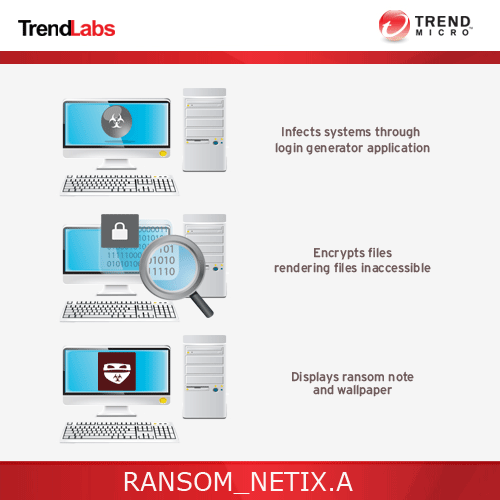
This Trojan arrives on a system as a file dropped by other malware or as a file downloaded unknowingly by users when visiting malicious sites.
It connects to certain websites to send and receive information.
TECHNICAL DETAILS
Arrival Details
This Trojan arrives on a system as a file dropped by other malware or as a file downloaded unknowingly by users when visiting malicious sites.
Installation
This Trojan drops the following files:
- %Desktop%\Instructions.txt - Ransom Note
- %User Temp%\info.txt
(Note: %Desktop% is the desktop folder, where it usually is C:\Documents and Settings\{user name}\Desktop in Windows 2000, Windows Server 2003, and Windows XP (32- and 64-bit); C:\Users\{user name}\Desktop in Windows Vista (32- and 64-bit), Windows 7 (32- and 64-bit), Windows 8 (32- and 64-bit), Windows 8.1 (32- and 64-bit), Windows Server 2008, and Windows Server 2012.. %User Temp% is the user's temporary folder, where it usually is C:\Documents and Settings\{user name}\Local Settings\Temp on Windows 2000, Windows Server 2003, and Windows XP (32- and 64-bit); C:\Users\{user name}\AppData\Local\Temp on Windows Vista (32- and 64-bit), Windows 7 (32- and 64-bit), Windows 8 (32- and 64-bit), Windows 8.1 (32- and 64-bit), Windows Server 2008, and Windows Server 2012.)
It drops and executes the following files:
- %User Temp%\Netflix Login Generator v1.1.exe - fake generator
(Note: %User Temp% is the user's temporary folder, where it usually is C:\Documents and Settings\{user name}\Local Settings\Temp on Windows 2000, Windows Server 2003, and Windows XP (32- and 64-bit); C:\Users\{user name}\AppData\Local\Temp on Windows Vista (32- and 64-bit), Windows 7 (32- and 64-bit), Windows 8 (32- and 64-bit), Windows 8.1 (32- and 64-bit), Windows Server 2008, and Windows Server 2012.)
It drops the following copies of itself into the affected system:
- %Application Data%\Microsoft\ScreenToGif\netprotocol.exe - executed afterwards
(Note: %Application Data% is the Application Data folder, where it usually is C:\Documents and Settings\{user name}\Application Data on Windows 2000, Windows Server 2003, and Windows XP (32- and 64-bit); C:\Users\{user name}\AppData\Roaming on Windows Vista (32- and 64-bit), Windows 7 (32- and 64-bit), Windows 8 (32- and 64-bit), Windows 8.1 (32- and 64-bit), Windows Server 2008, and Windows Server 2012.)
Other System Modifications
This Trojan adds the following registry keys as part of its installation routine:
HKEY_CURRENT_USER\Control Panel\Desktop
Wallpaper = %User Profile%\ransom.jpg
Download Routine
This Trojan accesses the following websites to download files:
- http://{BLOCKED}.{BLOCKED}.173.155/images/BG.jpg
It saves the files it downloads using the following names:
- %User Profile%\ransom.jpg - image used as wallpaper
(Note: %User Profile% is the current user's profile folder, which is usually C:\Documents and Settings\{user name} on Windows 2000, XP, and Server 2003, or C:\Users\{user name} on Windows Vista and 7.)
Other Details
This Trojan connects to the following website to send and receive information:
- http://{BLOCKED}.{BLOCKED}.173.155/createkeys.php
- http://{BLOCKED}.{BLOCKED}.173.155/savekey.php
- http://{BLOCKED}.{BLOCKED}.173.155/getid.php
It encrypts files with the following extensions:
- .ai
- .asp
- .aspx
- .avi
- .bmp
- .csv
- .doc
- .docx
- .epub
- .flp
- .flv
- .gif
- .html
- .itdb
- .itl
- .jpg
- .m4a
- .mdb
- .mkv
- .mp3
- .mp4
- .mpeg
- .odt
- .php
- .png
- .ppt
- .pptx
- .psd
- .py
- .rar
- .sql
- .txt
- .wma
- .wmv
- .xls
- .xlsx
- .xml
- .zip
It renames encrypted files using the following names:
- {original filename and extension}.se
It does the following:
- It terminates itself if it is not running under "Windows 7" or "Windows 10"
- It encrypts files under the following directory:
- C:\Users
NOTES:
It sets the system's desktop wallpaper to the following image:
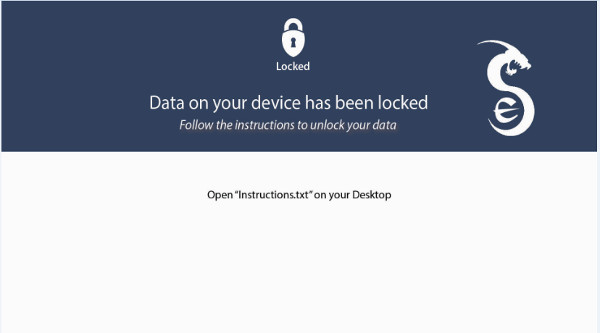
The ransom note contains the following:
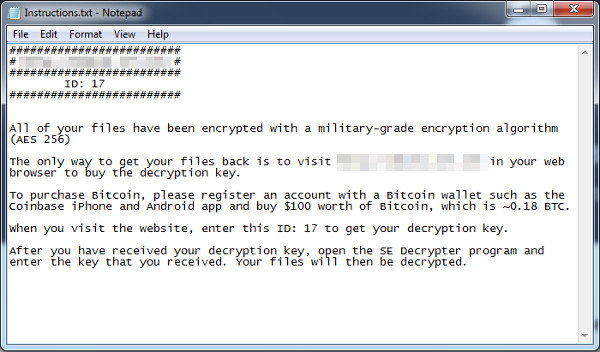
This ransomware displays the following fake Netflix Login Generator:
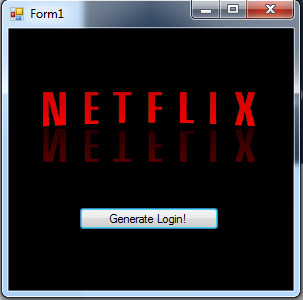
After clicking the "Generate Login" button on the fake window, it displays the following message box:
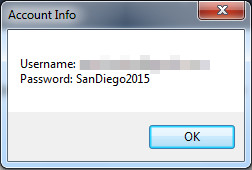
SOLUTION
Step 1
Before doing any scans, Windows XP, Windows Vista, and Windows 7 users must disable System Restore to allow full scanning of their computers.
Step 2
Note that not all files, folders, and registry keys and entries are installed on your computer during this malware's/spyware's/grayware's execution. This may be due to incomplete installation or other operating system conditions. If you do not find the same files/folders/registry information, please proceed to the next step.
Step 3
Restart in Safe Mode
Step 4
Search and delete this file
- %User Profile%\ransom.jpg
- %Desktop%\Instructions.txt
- %User Temp%\info.txt
- %User Temp%\Netflix Login Generator v1.1.exe
Step 5
Reset your Desktop properties
Step 6
Restart in normal mode and scan your computer with your Trend Micro product for files detected as RANSOM_NETIX.A. If the detected files have already been cleaned, deleted, or quarantined by your Trend Micro product, no further step is required. You may opt to simply delete the quarantined files. Please check this Knowledge Base page for more information.
Step 7
Restore encrypted files from backup.
Did this description help? Tell us how we did.


